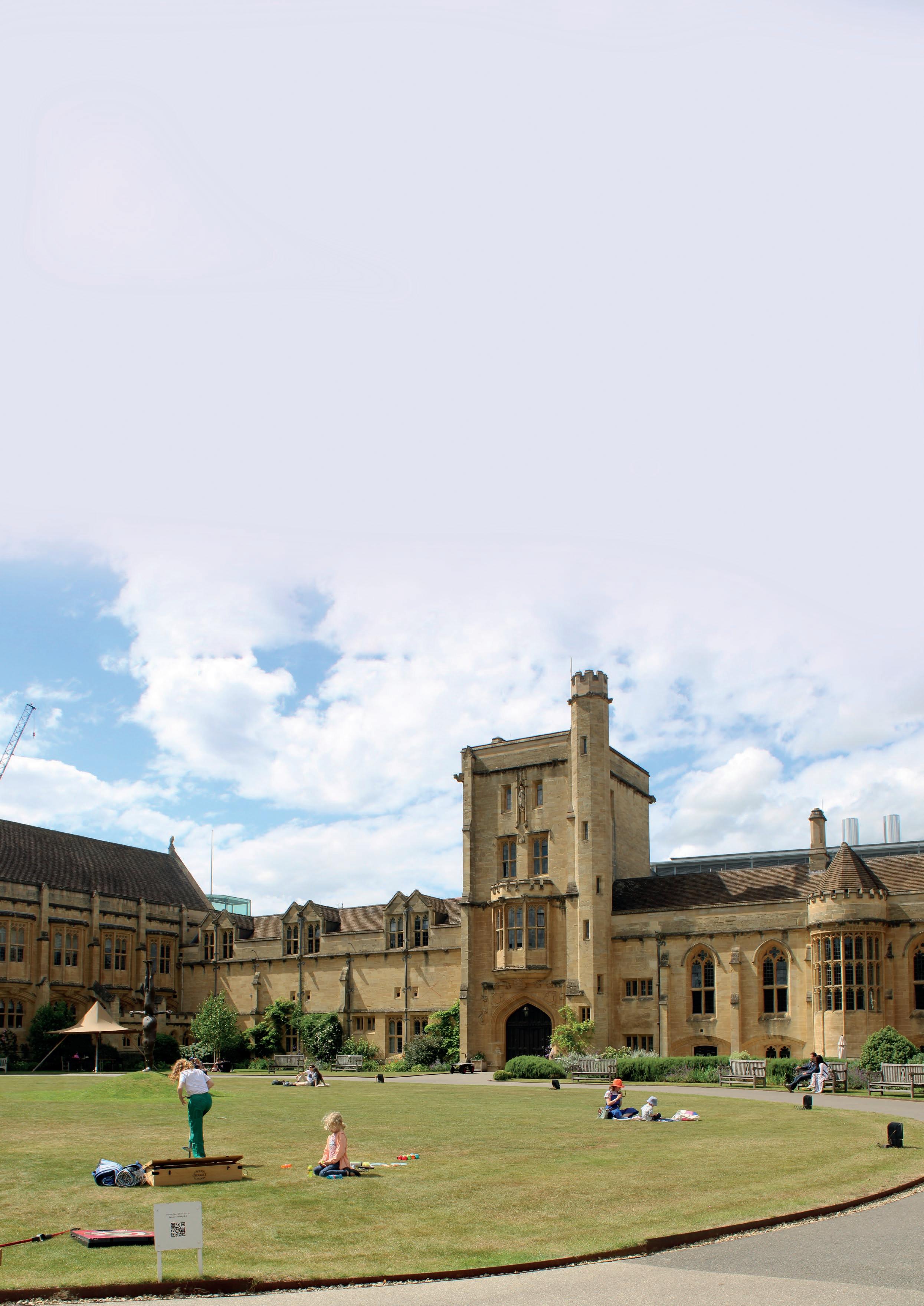
3 minute read
Pedagogical disobedience: unlearning, unthinking and decolonising International Development Studies
Pedagogical disobedience:
Advertisement
The paradigm we call international development has functioned as a global organising political and economic structure for nearly 80 years. Yet impoverishment persists and, in some cases, has worsened. Amber Murrey argues that the paradigm needs overturning.
What does it mean to study international development? Whose knowledges and perspectives have, do, and should inform and shape international development policy and programming? In a collaborative new book and teaching project with my colleague, Professor Patricia Daley, we ask readers to consider these questions. The book is designed to push at the boundaries of how we think about and practise international development. It is intentionally provocative in articulating disobedience in the classroom as central to decolonising Development Studies. We unmask the coloniality within foundational literatures of Geography and Development Studies. Colonial legacies and colonial logics continue to shape the ways in which land, well-being, progress and development are conceived of and practised. So how do we, through our classroom and activist practices, work collaboratively to create the radical imaginaries and practical scaffolding we need for decolonising development? Given the centrality of forms of expertise in fostering and legitimising histories of Eurocentric development practice, we argue that the classroom is a key battleground in the larger struggle to decolonise development. Employing a practice that we have called pedagogical disobedience, we chart a critical interdisciplinary approach to unthinking, unlearning and decolonising International Development Studies. Disobedient pedagogies demand explicit attention to thinking against and pushing against those ways of thinking and acting fostered by corporate and colonial logics, relations, and histories. A radical praxis is necessary to encourage forms of unlearning in the classroom. That is, while traditional pedagogical approaches hold that education is about building up and expanding upon the pre-existing knowledge and skills of students – sometimes, critical education is about coming to terms with the ways in which what we have learned previously is inaccurate
(often based upon colonial and racialised logics), or is inadequate to survival in our increasingly ecologically and economically precarious 21st century. Through pedagogical disobedience, we have developed a critique of the longstanding colonial practice of ‘incorporating’ marginalised people within dominant development paradigms to condone or exacerbate capitalist exploitation, at the same time as we actively attend to the necessary project of imagining liveable futures. Disobedient pedagogies entail teaching unconventional ideas that seem to have been rendered impossible through dominant institutions and categories of thought. This kind of disobedience in the classroom demands that students take on some of the responsibility for unlearning the norms that they have been disciplined to accept. Equally, disobedient pedagogies ask educators to engage in forms of unteaching which actively create the space for radical exchanges. Patricia Daley’s and my book engages with practitioner debates and outlines decolonising pedagogies that seek to empower students to question accepted wisdoms. For us, this is a project that is of particular urgency within our location at Oxford University. Our book is based on our experiences of teaching throughout the years, but in particular of collaboratively teaching a very popular option, ‘Critical Development Geographies’, to our second- and third-year undergraduates studying Geography. It is aimed at students, teachers, practitioners, and activists and contains rich empirical examples, discussion questions, and activities for more applied learning. Our objective is for readers to think through what it means to engage in decolonising international development in the classroom and to chart convivial and dignified futures beyond its limits.

Amber Murrey and Professor Aziz Fall at the launch of Amber’s first book, ‘A Certain Amount of Madness’: The Life, Politics and Legacies of Thomas Sankara (Pluto Press, 2018) in Cairo, Egypt.
Dr Amber Murrey is Tutorial Fellow in Human Geography at Mansfield. Her forthcoming book, Decolonizing Development Studies: disobedient pedagogies for decolonial futures, co-authored with Professor Patricia Daley, will be published by Pluto Press in 2023.










